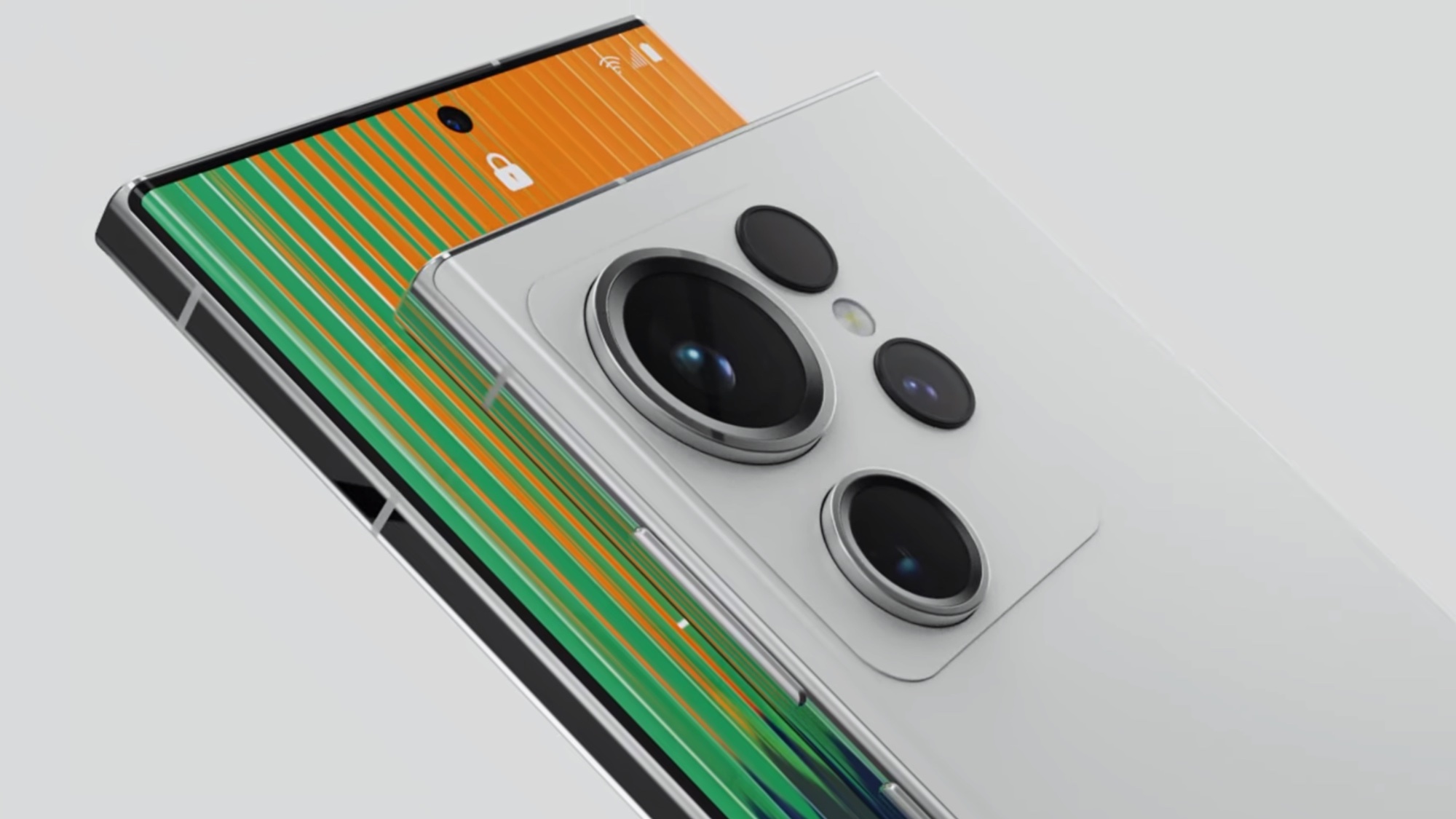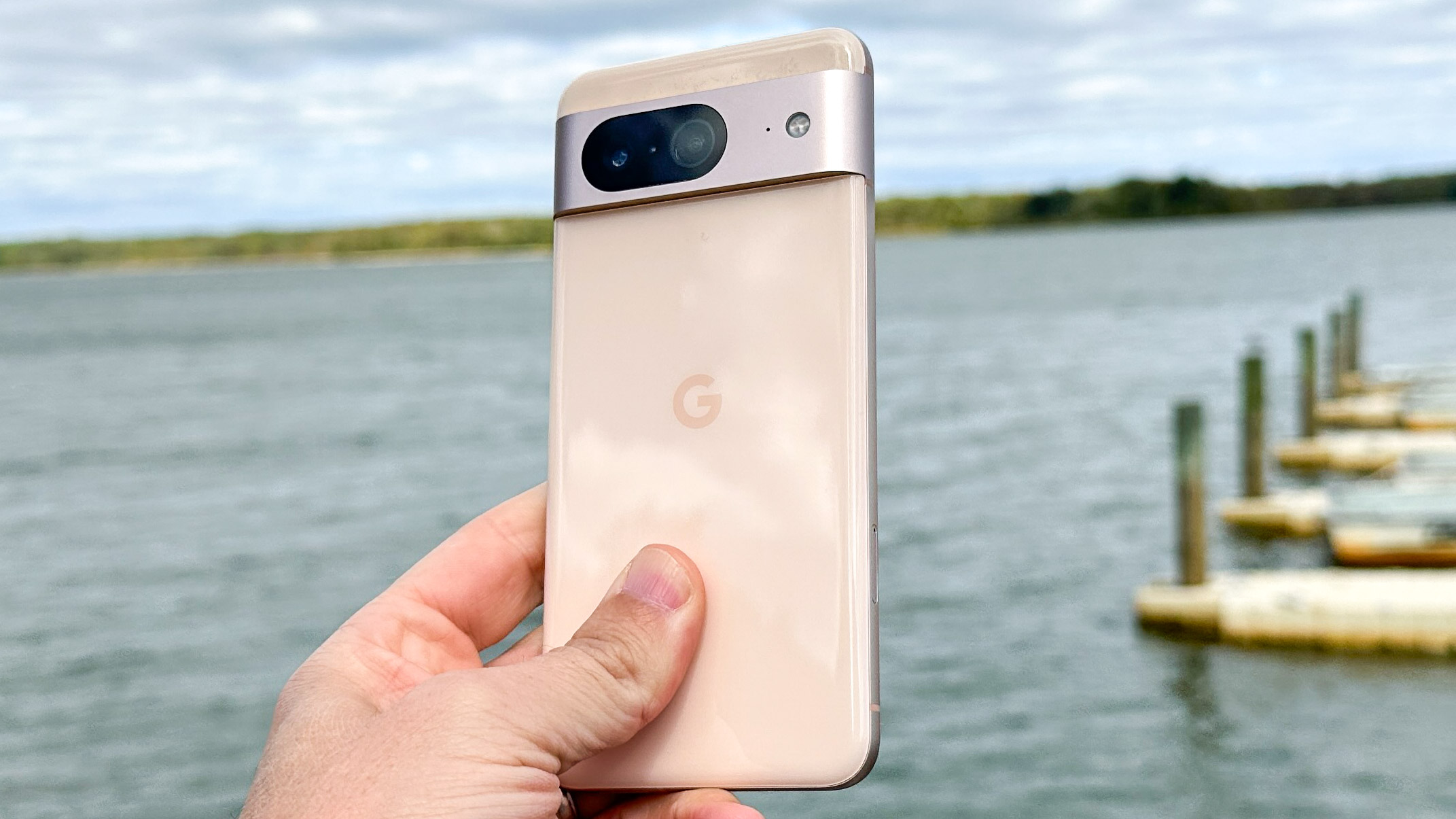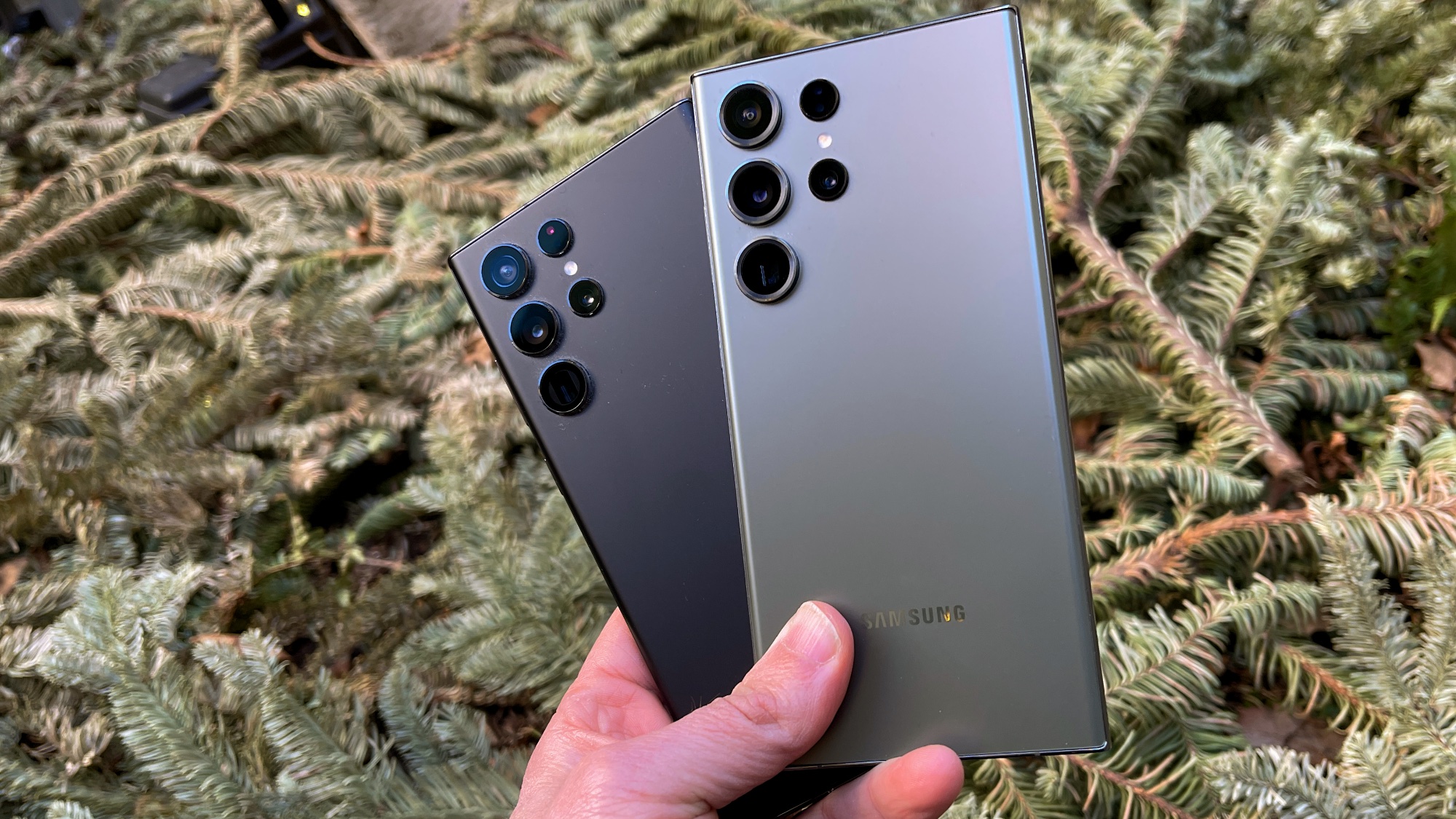Samsung Galaxy S24 could steal one of Google Pixel's most defining features
Samsung Galaxy S24 could steal some of the Pixels' AI thunder

Here at Tom’s Guide our expert editors are committed to bringing you the best news, reviews and guides to help you stay informed and ahead of the curve!
You are now subscribed
Your newsletter sign-up was successful
Want to add more newsletters?

Daily (Mon-Sun)
Tom's Guide Daily
Sign up to get the latest updates on all of your favorite content! From cutting-edge tech news and the hottest streaming buzz to unbeatable deals on the best products and in-depth reviews, we’ve got you covered.

Weekly on Thursday
Tom's AI Guide
Be AI savvy with your weekly newsletter summing up all the biggest AI news you need to know. Plus, analysis from our AI editor and tips on how to use the latest AI tools!

Weekly on Friday
Tom's iGuide
Unlock the vast world of Apple news straight to your inbox. With coverage on everything from exciting product launches to essential software updates, this is your go-to source for the latest updates on all the best Apple content.

Weekly on Monday
Tom's Streaming Guide
Our weekly newsletter is expertly crafted to immerse you in the world of streaming. Stay updated on the latest releases and our top recommendations across your favorite streaming platforms.
Join the club
Get full access to premium articles, exclusive features and a growing list of member rewards.
Recently Google has been going hard on AI, and nowhere is that more apparent on the Google Pixel phone range. In fact, you could say AI is one of the Pixel series’ defining features — especially in the photography department. It's a reason why the Pixel 8 Pro is on our list of the best camera phones.
The problem is that Google isn’t the only phone maker that’s realized the kind of benefits AI could have for smartphone users. The latest news is that Samsung will be going all in on AI on the upcoming Samsung Galaxy S24 — aided by new AI capabilities on the Snapdragon 8 Gen 3 chipset. While that’s potentially a good thing for Samsung and its users, it could mean there’s one less reason to buy a Pixel from next year.
Where the Google Pixel succeeds (and fails)

There are plenty of reasons to like the Google Pixel series. The biggest perk is, of course, the fact that they’re always the first phones to get the latest Android updates. No matter what Pixel you have, so long as there’s still software support you’re guaranteed to get new software before any other Android phone.
Pixels also offer a great mix of features, including strong photography performance, smart design, top of the range hardware, fast recharging capabilities, and a price that’s typically lower than other premium phone makers — even with the recent $100 price hike.
Of course there are a lot of reasons why the Pixel isn’t quite as appealing as, say, a Samsung Galaxy or an iPhone. Battery life is often a concern, and every year Google seems to make progress on this front always seems to blow up the following year. This is down, in part, to the fact Google tends to use older and less efficient hardware compared to rivals — leading to excessive battery loss.
The main chipset is particularly noteworthy here. While Apple and Samsung have been offering rather advanced chips. The Apple A17 Pro uses the new 3nm process, which has proven to offer a performance and efficiency boost, while Samsung is expected to use the hi-tech Snapdragon 8 Gen 3 chip.
Meanwhile, the Google Pixel 8 has a Tensor G3, which is based on an older Exynos chip from Samsung, and does not have quite the same benchmarking prowess. Not that it’s built to offer top-tier performance, that is. In fact the goal of the Tensor range is to offer improved AI capabilities, better computational photography and increased security (combined with the Titan M2 security chip).
Get instant access to breaking news, the hottest reviews, great deals and helpful tips.
The other issue is that a Pixel’s benefits are typically things that its rivals do much better. The Google Pixel 8 and Pixel 8 Pro are on many of our recommendation lists, like best phone and best camera phone, but they’re never at the top — with Samsung and Apple devices regularly offering something better.
And if the Samsung Galaxy S24 can catch up with the AI, while simultaneously offering better performance and battery longevity, it’s going to make Google Pixels a heck of a lot less appealing.
Samsung has big plans for AI on phones

Samsung has confirmed that it will be going big on AI with the Galaxy S24, proclaiming that it will be "universal intelligence on your phone as you’ve never seen it before." Dubbed "Samsung Gauss," the company claims that the AI will be "in all the places it matters most," promising "barrier-free communication," "simplified productivity" and "unleashed creativity."
Those are some pretty bold claims, and it’s the kind of thing you’d expect to hear out of the mouths of executives at an AI start-up. Still given Google’s push into mobile AI, and the fact Apple is said to be doing the same, it’s not surprising that Samsung is trying to hype up its own addition to the AI bandwagon.
Of course Samsung has been pretty coy about the whole thing. Drip-feeding people information about upcoming phones is not its usual style — that’s more of a OnePlus thing. But it has revealed a few bits of information about the Galaxy S24’s AI capabilities.
The most notable of these is called a very self-explanatory "AI Live Translate Call." As you’d expect, it can translate a phone call in real time using audio and text-based translation. There’s also some kind of generative text assistance, which seems to use generative language models to help you write emails, summarize documents and translate content. Nothing particularly novel, from the sounds of things, but useful nonetheless.
Of course there will be plenty of camera-based features, much like Google. We don’t know a lot about these, but Samsung has already been touting the benefits of the Snapdragon 8 Gen 3 on the camera. One such enhancement allows you to keep a video subject in frame at all times, and "end-to-end AI Remosaic image capture." This supposedly means faster image capture and processing, with richer details and colors as a result.
But how it will compare to Google all depends on what Samsung does with the AI and how well it works. Few of us can forget how lackluster Samsung’s attempt to compete with virtual assistants like Siri, Alexa and Google Assistant was — and it’s got to the point where Bixby is more of an afterthought than an actual, tangible feature.
We’ve also heard that Samsung may paywall some of its AI features. That doesn’t seem like a wise idea to me, especially considering how much Samsung Galaxy phones tend to cost, and it would certainly give the advantage to rivals that aren’t adding microtransactions to their hardware.
Success requires more than just AI

Of course there’s a lot more to making a great phone than jumping on the latest bandwagon. Having the best AI in the world and none of the other things that make a phone worth having makes it little more than a gimmick. Needless to say Samsung can’t afford to be seen jumping onto gimmicks or releasing substandard phones.
So Samsung needs to ensure that the Galaxy S24 still has all the important bits. The Samsung Galaxy S23 Ultra is the best camera phone right now, and the S24 series, particularly the Ultra, needs to push the bar even higher. Likewise, it needs to have an excellent battery life, a bright colorful display and performance that can at least try and catch up with Apple’s A17 Pro
Considering there have been constant rumors Samsung may release some versions of the S24 with an Exynos chipset, rather than the Snapdragon 8 Gen 3, the performance aspect may not be guaranteed.
Without pushing the envelope, and giving us a new idea of what the best Android phone should be like, all those AI features are going to go down like a lead balloon. Because why bother picking up an ultra-premium phone for the AI capabilities if everything else sucks? You’d be better off saving your money for a phone that does everything.
Money is also going to be a key factor here. We’ve already seen the Pixel 8 series go up by $100, and the iPhone 15 Pro Max saw a relative price hike thanks to Apple scrapping the 128GB storage option. The possibility of a Galaxy S24 price hike looms over the phone like a specter, and that could well be one of the key factors that helps people decide whether they want to upgrade or not.
One of the things Samsung will need to catch up on is long-lasting software support. Samsung had previously been offering more than Google, with the Galaxy S23 slated to get four full Android updates — taking the phone to the launch of Android 17 in 2026. On top of that, users are guaranteed 5 years of security updates.
Google is offering 7 years of Pixel 8 support, covering Android, security updates and spare parts availability. The only phone maker that has promised more support is Fairphone, with 8-10 years of software and hardware support for the new Fairphone 5. Needless to say, it puts Google in a very good position, considering how much longer people are keeping their phones. I wouldn’t be surprised if Samsung matches Google’s support pledge. There’s no guarantee that it will, but anything less than 7 years of S24 support will give Google a much-needed advantage.
Samsung also offers its own high-security tech in the form of Knox, though it’s unclear how it fares compared to Google’s Titan M2 security chip. Likewise the company has been working hard to ensure Android updates are available much faster than they previously were. We’ve already seen that in action with Android 14 rolling out as part of OneUI 6 just over a month after the general release of the OS upgrade.
It’ll never be as fast as Google, but it certainly looks like Samsung is doing its best to catch up as much as it can. Particularly on the flagship models.
Bottom line
Both Google and Samsung make some pretty incredible phones. Samsung just happens to make better ones most of the time. Better cameras, better batteries, better performance and all those other things that combine to transform a phone from good enough to great. Pixel phones are, at best, inconsistent, and no matter how good certain features are they always seem to be let down elsewhere. And I say that as a loyal Pixel owner.
Of course, when it comes down to it, the differences between a lot of the best phones do feel pretty trivial — and it’s the handful of key features that help them stand out. In recent years all the AI and machine learning advancements have given the Pixel series an edge it needs to compete — helping to make up for some of Google’s shortcomings.
If Samsung manages to claim that edge for itself while the divide between both companies' phones remains the same, then Google could have a serious problem on its hands. Especially if Samsung manages to successfully mimic some of the better AI-powered features on the Pixel, like photo unblur or magic audio eraser.
Let's just hope this change prompts Google to make some much needed improvements to the rest of its phone.
More from Tom's Guide
- The Samsung Galaxy S24 Ultra could be the AI-powered phone I’ve been waiting for
- iPhone 16 Ultra needs to stand out from the Pro Max — here’s how Apple should do it
- iPhone SE 4 could say goodbye to Touch ID — and that's a good thing

Tom is the Tom's Guide's UK Phones Editor, tackling the latest smartphone news and vocally expressing his opinions about upcoming features or changes. It's long way from his days as editor of Gizmodo UK, when pretty much everything was on the table. He’s usually found trying to squeeze another giant Lego set onto the shelf, draining very large cups of coffee, or complaining about how terrible his Smart TV is.
 Club Benefits
Club Benefits





